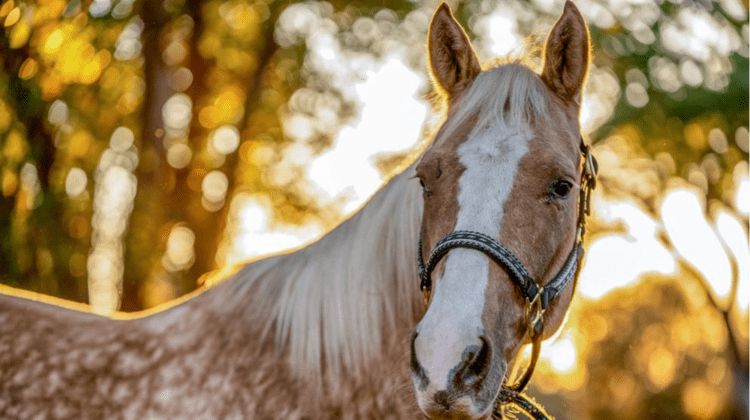
Equine insurance is not only for the pros. Your horse is an expensive investment, and you should consider protecting it with medical, surgical, mortality and liability insurance.
If you have a small farm or ranch, even if it’s not for commercial use, you also need to safeguard those assets. Let’s look at the components of a comprehensive equine insurance portfolio.
Mortality insurance
While the name of this coverage suggests it pays only upon the death of your horse, that is not the case. A full mortality policy, or "all-risks mortality" policy, insures you against theft as well. It is often required as the underlying insurance if you want to add major medical and surgery coverage.
With a full mortality policy, you can add loss-of-use insurance, which reimburses you if the horse becomes permanently disabled but does not need to be put down. This addition to your policy can provide funds to help you purchase another horse, though it typically doesn’t pay the full value of your horse agreed upon in the policy.
A full mortality policy may also cover emergency colic surgery (or you can get it as an add-on). Colic is one of the most feared events in a horse owner’s life, as it can lead to extreme pain for the horse and is frequently fatal. The good news is colic can often be corrected with surgery, but such a procedure is expensive.
If you breed your stallion, you might also consider adding infertility coverage. This protects your investment against impotence or some other incapacity to breed due to a covered accident or illness.
Many of these add-ons to full mortality insurance require a veterinarian’s examination and sign-off. The veterinarian must confirm the horse is in good health before the insurance policy can be placed. This also helps validate future claims.
If your horse doesn’t qualify for full mortality, or you prefer a less expensive option, you may be able to get limited mortality coverage. Limited mortality coverage usually cannot be added to the way a full mortality policy can, but it does insure against the death of your horse due to several hazards. These include lightning, wild animal attacks and building collapses.
Know that there are sublimits written into most policies. These are thresholds of payout for different occurrences, such as the cost of diagnostics and lameness treatment. Even colic and other surgeries typically have payout limits, though some insurers let you upgrade your limits for an additional premium.
Liability insurance
Although many states have equine liability indemnity enshrined in the law, you shouldn’t count on this to protect you against damage or injury your horse causes. An equine liability policy for private horse owners (noncommercial use) will help you if your horse injures someone or damages their property. It usually covers you on and off your premises, though there are often territorial restrictions. If you show or travel outside those geographic zones, talk to your insurance agent about extending coverage for those purposes.
If you show your horse, use it for pony parties, parades or carriage pulling, or lend it to others, equine liability insurance is important protection. If you have a helper come to clean your barn or exercise your horse, you have exposure to injury claims. Even if there is no liability proven, you might have to defend yourself in a lawsuit. Your liability policy would help with those costs.
If you decide to pick up some extra money by teaching lessons or giving rides, your personal liability insurance probably won’t have the right coverage. You should consider liability insurance for instructors. This is true even if you don’t have employees or run a commercial barn.
Some horse owners generously stable other people's horses or trailer them to shows or trail rides. Doing so puts you at risk of a liability claim if someone else’s horse gets injured while in your care, custody or control. “Care, custody or control” is a specific type of coverage that protects you in transit and wherever you are responsible for the care of another person’s horse. Ask your Rathbun Insurance account manager about adding this to your individual equine liability policy.
Other property concerns
Your tack, stable and paddock fence are expensive types of property. The best way to insure them may be with a specialty policy. Homeowners insurance might cover some of your horse-related property if your policy is written to include other structures on your premises, but ask your insurance professional about the levels of coverage.
There are policies on the market for large home properties that have a barn or paddock, a grain silo, horse fencing, jumps, tractors and more. Many policies limit coverage for barns and other outbuildings to a small percentage (typically 10%) of the principal residence on the property. If you live in a mobile home or a small cottage on a large property with a nice barn, ask your insurance agent about adding coverage for your horse-related structures and contents.
You must insure your trailer separately under your auto insurance policy. Your auto insurance should include collision and noncollision (comprehensive) coverage. If a tree falls on the trailer while it’s parked or a windstorm blows it over, a comprehensive policy will help with repairs. Make sure your agent knows you will trailer horses. Your personal auto insurance liability limits should reflect that.
With good homeowners insurance, personal auto insurance and equine insurance, you should have adequate protection in the event of an incident. Remember to consider the relative value of your home and your horse-related property.
The more detail you can give your Rathbun Insurance account manager about your horse and equine-related activities, the better your insurance coverage will fit.
